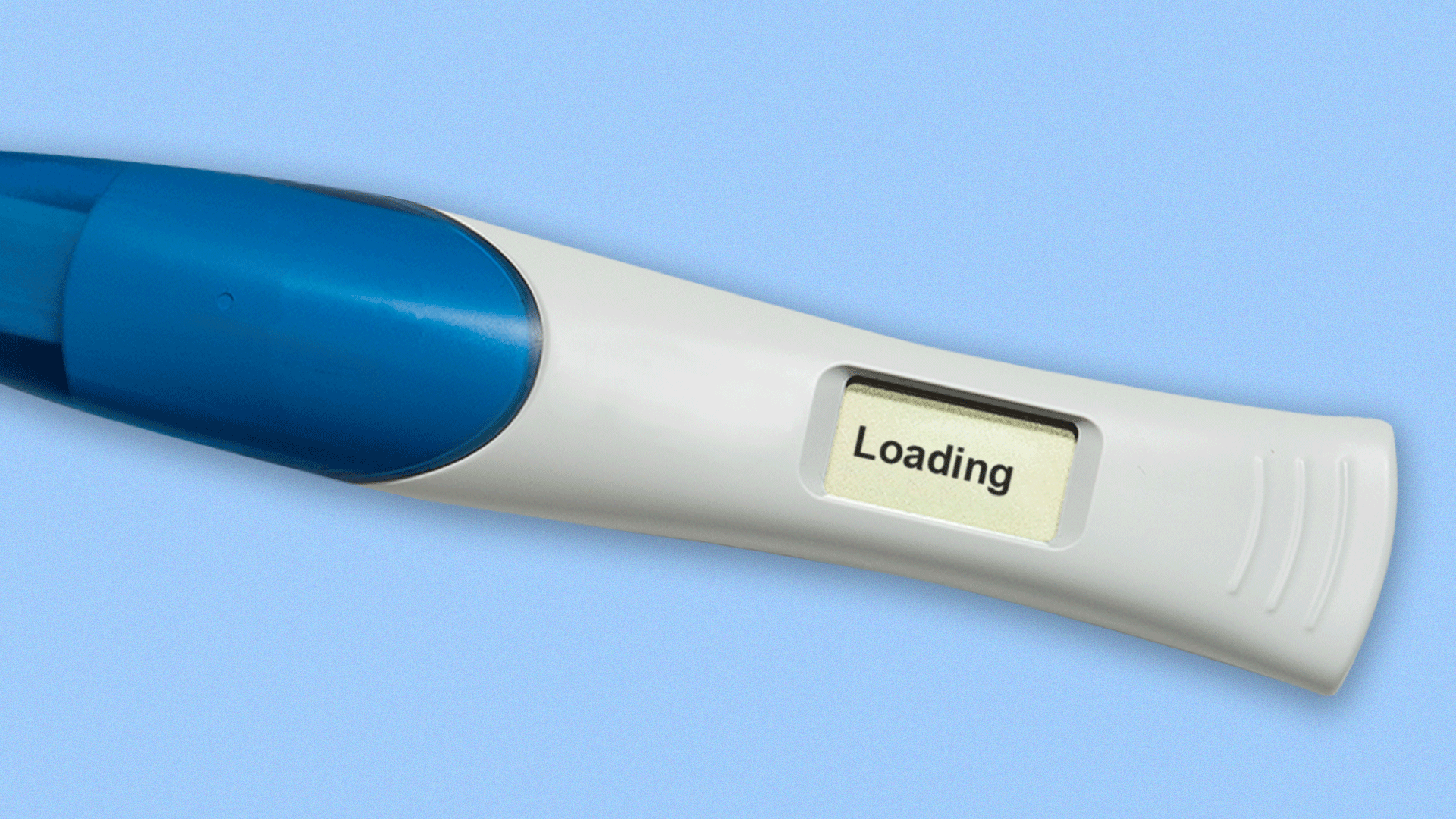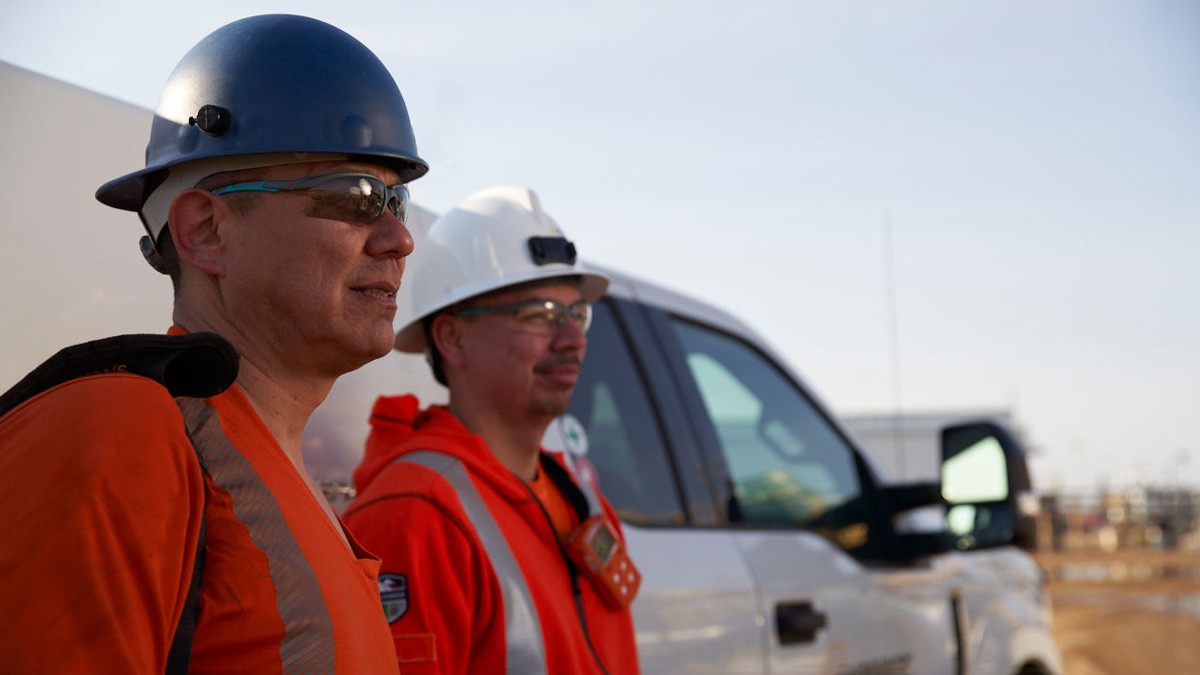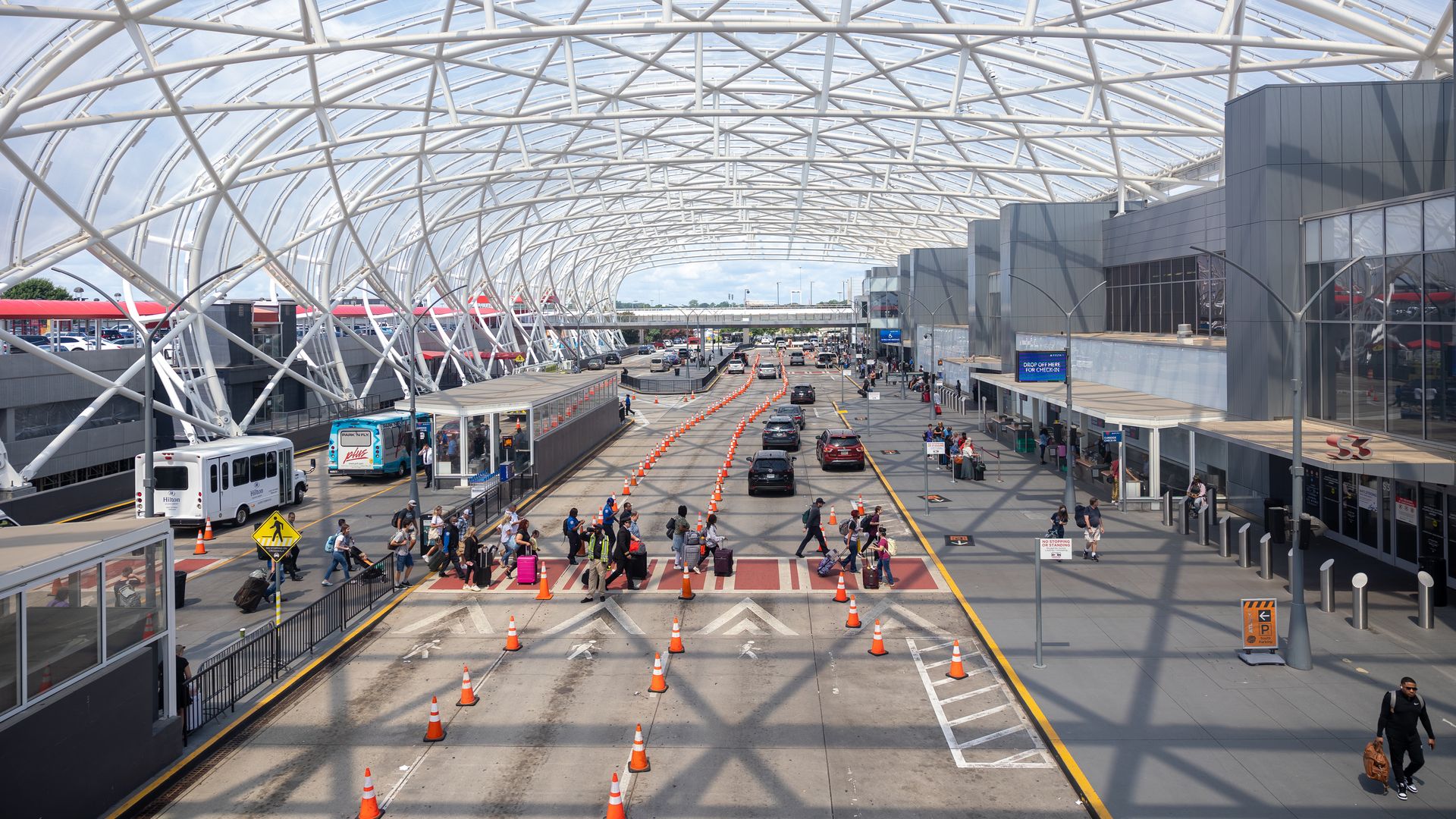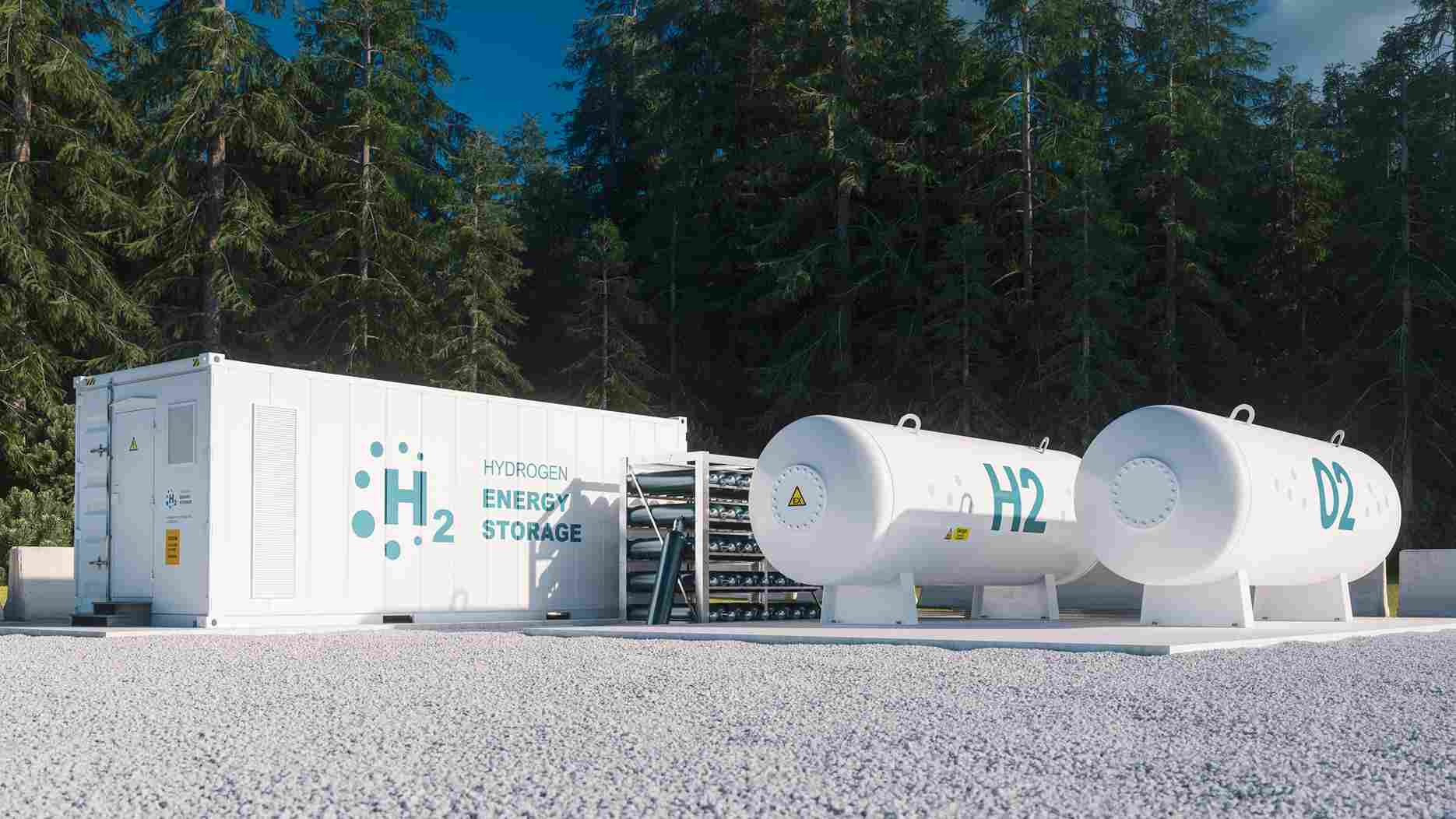| | | | | | | Presented By Enbridge | | | | Axios What's Next | | By Alex Fitzpatrick, Jennifer A. Kingson and Joann Muller · Jul 06, 2022 | | Alex here. In reporting today's story, I dove into the world of early pregnancy test technology — and found there's only so far the science can be pushed. Today's Smart Brevity count: 973 words, a 3 1/2-minute read. | | | | | | 1 big thing: Early pregnancy testing tech vs. biology |  | | | Illustration: Natalie Peeples/Axios | | | | As states across the U.S. pass restrictive abortion laws with cutoffs as tight as six weeks, early pregnancy detection could give people more time to make the right choice for them, Alex Fitzpatrick reports. Yes, but: Early home pregnancy testing tech is limited by human biology. Why it matters: Taking a home test is typically a person's first step in confirming a pregnancy, followed up by blood work. - Given how pregnancy time is calculated, a six-week abortion ban can in practice give people as little as a week or two to make a decision about whether to terminate a pregnancy.
The details: Many home pregnancy testing companies offer "early detection" options, though they're typically less reliable than traditional home tests. - One manufacturer, Clearblue, says its early test can spot 71% of pregnancies five days before an expected period — compared to more than 99% from the day of an expected period.
- Fertility startup Proov recently unveiled an "Early Check" pregnancy test, though its use is also limited to five days before an expected period.
- Such tests also rely on a person's knowledge of their cycle, yet it may be getting riskier in some states to track such data. Plus, cycles can vary widely based on all sorts of factors, and people who aren't planning to get pregnant may not test before missing a period.
The challenge? Biology. - Home pregnancy tests check urine samples for the pregnancy hormone hCG, but it can take weeks between the time a person has sex and the point at which their body is producing enough hCG to be detected.
- The pace of the early pregnancy process can vary widely among individuals, and even for one individual for different pregnancies, says Mayo Clinic doctor Leslie Donato.
Laboratory testing, Donato says, is far more accurate than at-home urine tests. - "If you were to send a blood sample to a lab, most laboratory tests would actually detect that pregnancy at the first day of missed menses," Donato says. "But some over-the-counter urine pregnancy testing may actually miss it."
- But blood testing is often more expensive and harder to access — a problem that may worsen in states where clinics are closing and some people may feel less safe seeking abortion care.
The bottom line: There's no perfect early detection home pregnancy test on the horizon. Share this story. |     | | | | | | 2. Tesla outpaced |  | | | A sedan rolls off the assembly line at BYD's new manufacturing base in Changfeng County on June 30, 2022. Photo: VCG via Getty Images | | | | Chinese automaker BYD has surpassed Tesla as the world's leading electric vehicle seller by volume, Axios' Ivana Saric reports. By the numbers: BYD sold 638,157 electric or plug-in hybrid passenger vehicles in the first six months of 2022, according to company filings. - That's a nearly 325% jump from the same period last year.
Tesla, on the other hand, delivered 564,743 vehicles in the first six months of the year, according to its first and second quarter reports. - Tesla has been contending with COVID-related supply chain challenges and factory shutdowns.
- BYD, whose shares have risen 36% since January, was able to avoid factory closures, Business Insider reports.
The big picture: BYD and other Chinese automakers largely dominate the fast-growing Chinese market, and now they're looking to expand westward. Share this story. |     | | | | | | 3. The local news crisis is deepening divides |  | | | Illustration: Annelise Capossela/Axios | | | | Around two U.S. newspapers are closing every week, according to a new report, suggesting the local news crisis spurred by the pandemic will worsen in coming years, Axios' Sara Fischer reports. Why it matters: Hyperlocal communities are being disproportionately affected by the fall of local newspapers, deepening America's economic divide. - The average poverty rate in a U.S. news desert — a community without a local newspaper — is 16%, compared to the 11% national average.
- The average median annual income of a household in a news desert is $15,000 less than the average U.S. household overall.
State of play: Around 7% of America's counties now have no local news outlet, and around 20% are at risk of their communities becoming news deserts. Be smart: The demise of local news has caught the attention of many nonprofits and wealthy individuals, but their efforts haven't filled the void. Read the rest. |     | | | | | | A message from Enbridge | | Tomorrow is happening now | | |  | | | | Hydrogen — fuel of the future? With North America's first utility-scale power-to-gas facility, Enbridge is working today to blend green hydrogen into natural gas, reducing emissions while sustaining affordable, reliable energy for homes and businesses. | | | | | | 4. Pass me that hammer, would ya? |  | | | Illustration: Aïda Amer/Axios | | | | Americans are cracking open their pandemic-bloated piggybanks, the Wall Street Journal reports. By the numbers: "Families have tapped about $114 billion of their pandemic savings so far," per the paper's coverage of a new Moody's report. - Americans had $2.7 trillion saved up at the end of 2021, in part because people spent less on travel and experiences during the height of the pandemic.
- The personal saving rate — a measure of how much cash families have left after spending and paying taxes — dipped to 5.4% in May, down from April 2020's 34% record.
Why it matters: All this spending is at cross-purposes with U.S. economic officials' desperate efforts to curb inflation by incentivizing savings over spending. Be smart: As rising costs outpace wage growth, it's no wonder that we're able to keep less of our paychecks. - Plus, many families weren't fortunate enough to have built a pandemic cash stash.
|     | | | | | | 5. What you're saying: Easy flying |  | | | Travelers at Atlanta's Hartsfield-Jackson International Airport on July 2, 2022. Photo: Nathan Posner/Anadolu Agency via Getty Images | | | | Lots of What's Next readers had no trouble flying this weekend, despite fears it would get messy out there. - "My family's Delta flight from Cincinnati to Las Vegas departed and arrived early; we even got upgraded to first class, which never happens!" says Bo Howell. "The car rental, on the other hand, was a complete pain."
- "My husband and I flew from Amsterdam's Schiphol Airport to Newark Liberty Airport this past Sunday," writes Alice Harris. "Thanks to us taking all the news and warnings seriously, and some luck, our trip went rather smoothly."
- And here's Joanne Tabellija: "On July 2, United Airlines service was on time, and I even went standby on an earlier flight and my checked bag caught up to me."
The big picture: Despite widespread air travel issues, it's still possible to have a seamless trip — especially if you follow some of our readers' suggestions, like booking the day's earliest flight and avoiding layovers. |     | | | | | | A message from Enbridge | | Tomorrow is happening now | | |  | | | | Hydrogen — fuel of the future? With North America's first utility-scale power-to-gas facility, Enbridge is working today to blend green hydrogen into natural gas, reducing emissions while sustaining affordable, reliable energy for homes and businesses. | | | | Was this email forwarded to you? Get your daily dose of What's Next magic by signing up here for our free newsletter. |  | It's called Smart Brevity®. Over 300 orgs use it — in a tool called Axios HQ — to drive productivity with clearer workplace communications. | | | | | | Axios thanks our partners for supporting our newsletters. If you're interested in advertising, learn more here.
Sponsorship has no influence on editorial content. Axios, 3100 Clarendon Blvd, Suite 1300, Arlington VA 22201 | | | You received this email because you signed up for newsletters from Axios.
Change your preferences or unsubscribe here. | | | Was this email forwarded to you?
Sign up now to get Axios in your inbox. | | | | Follow Axios on social media:    | | | | | |









No comments:
Post a Comment